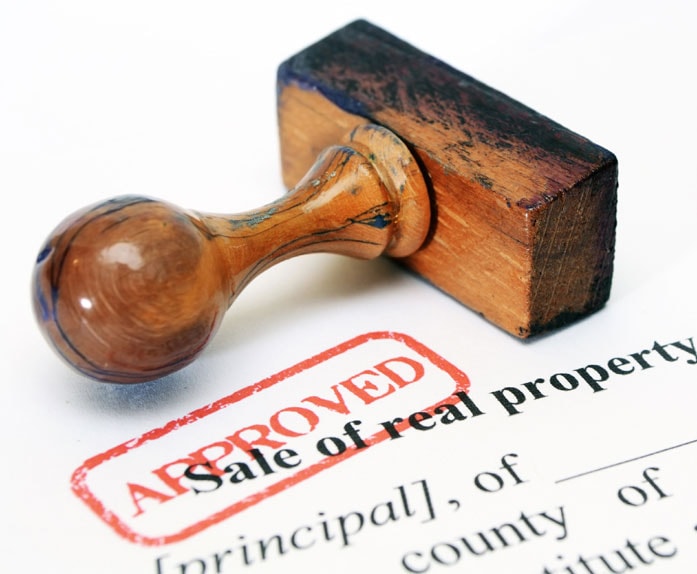A Short Guide to Residential Purchase and Sale Closings in Ontario
Real estate closings in Ontario, Canada, involve a series of legal and financial transactions that take place during the purchase and sale of residential homes. These transactions require the coordination of various professionals, including real estate agents, lawyers, and lenders, to ensure a smooth and legally compliant process. This comprehensive guide outlines the key stages and steps involved in the closing process for residential homes in Ontario.
1. Pre-Closing Procedures
a. Offer to Purchase and Agreement of Purchase and Sale
The closing process begins with the submission of an Offer to Purchase (OTP) by the buyer. Upon acceptance by the seller, the OTP becomes the Agreement of Purchase and Sale (APS), a legally binding contract outlining the terms and conditions of the transaction.
b. Mortgage Pre-Approval
Before making an offer, buyers should obtain mortgage pre-approval from a lender to ensure they have the necessary financing to complete the purchase.
c. Home Inspection and Conditions
A home inspection is recommended to identify any potential issues with the property. Buyers may include conditions in the APS, such as financing and satisfactory home inspection, to protect their interests.
2. Legal Representation and Searches
a. Retaining a Real Estate Lawyer
Both the buyer and seller must retain a real estate lawyer to represent their interests and facilitate the closing process.
b. Title Search
The buyer’s lawyer will perform a title search to ensure that the seller holds a clear and marketable title to the property, free of liens or encumbrances.
c. Land Transfer Tax
In Ontario, buyers are required to pay a land transfer tax based on the purchase price. First-time homebuyers may be eligible for a rebate on this tax.
3. Financing and Mortgage Approval
a. Mortgage Application
Upon acceptance of the APS, the buyer should submit a formal mortgage application to their chosen lender.
b. Appraisal
The lender may require an appraisal to verify the property’s market value and ensure it meets its lending criteria.
c. Mortgage Approval
Once the lender is satisfied with the appraisal and other conditions, they will issue a mortgage commitment letter, confirming the mortgage approval.
4. Closing Preparations
a. Statement of Adjustments
The buyer’s lawyer will prepare a Statement of Adjustments, outlining the financial details of the transaction, including the purchase price, adjustments for prepaid expenses, and the balance due on closing.
b. Pre-Closing Documentation
The buyer’s lawyer will draft the necessary documents, such as the mortgage, deed, and any other required legal paperwork.
c. Pre-Closing Walkthrough
The buyer should conduct a final walkthrough of the property to ensure it is in the agreed-upon condition and to identify any potential issues before closing.
5. Closing Day
a. Transfer of Funds
The buyer’s lawyer will transfer the funds to the seller’s lawyer, including the purchase price and any additional closing costs.
b. Registration of Title and Mortgage
The buyer’s lawyer will register the transfer of title and the mortgage with the appropriate land registry office.
c. Key Exchange
Once the transfer is complete, the seller will provide the keys to the buyer, officially transferring possession of the property.
6. Post-Closing
a. Title Insurance
The buyer may obtain title insurance to protect against any unforeseen title issues that may arise after closing.
b. Property Taxes and Utilities
The buyer is responsible for ensuring that property taxes and utility accounts are transferred into their name after closing.
Conclusion
Understanding the closing process in Ontario is crucial for both buyers and sellers of residential homes. By following the steps outlined in this guide and working with qualified professionals, parties can ensure a smooth and successful real estate transaction.
A REAL ESTATE LAWYER
represents you on your home purchase and sale closing
and helps you meet the requirements of your mortgage lender.
Let us know how we can help you!
Purchasing, selling, or mortgaging your real estate property?
A home purchase or sale is one of the biggest financial decisions a person can make. It is important to make sure the deal is secure, deadlines are met, the title is clear, and any issues that may arise are resolved quickly and efficiently.

How to Stress Test Your Mortgage
Buying a house takes so much consideration and planning. You need to assess if you could afford it and consider all the possible worst-case scenarios in case something happens due to a job loss or unforeseen expenses. It is like gearing up when it is cloudy and buying travel insurance when planning a long trip or vacation. It is the same way when taking a mortgage.
The Office of the Superintendent of Financial Institutions (OSFI) introduced new, tighter mortgage rules, requiring borrowers with uninsured mortgages (those putting a down payment of 20 percent or more) to undergo a stress test. As of Jan. 1, 2018, uninsured borrowers must now qualify as a new minimum rate — the greater of the Bank of Canada’s five-year benchmark rate, which currently sits at 4.99 percent, or 200 basis points higher than their mortgage rate.
While the stress test aims at ensuring that borrowers can afford mortgage rate hikes, some sources are questioning — if not outright opposing — the latest mortgage rule.
A stress test is a way of determining exactly how much you can afford even on worst-case scenarios or twist of unexpected events, such as when income has been reduced due to job loss. Can you still afford to take a mortgage payment? What if the interest rates in the market spike-up? Do you think you can still afford to refinance your home?
This type of planning is very crucial for various reasons. First, interest rates are on the rise. So too are the mortgages or real estate. According to the Canadian Real Estate Association, the national average home price was $496,500 in December 2017 with a year-over-year increase of 5.7%
If you can still afford to pay the mortgage in the case of interest spike per year, then you can start shopping and re-evaluate your budget.
Due to new mortgage rules that came into effect last January 1, 2018, all home buyers are required to get either the high-ratio mortgage or an uninsured mortgage are now subject to mortgage stress test and we should be qualified at a rate that is higher than I can pay.
The minimum qualifying rate (or stress test) for consumers getting uninsured mortgages—borrowers with a down payment of 20% or more—will be the greater of the Bank of Canada’s five-year benchmark rate (presently 4.89%) or 200 basis points above the mortgage holder’s contractual mortgage rate.
This means you may need to weigh your options: Do you save enough for higher down payment and defer the price of your real estate property or house? Or simply choose the more affordable home?
Only you may know the best answer based on your income status. The best option is still to talk to an expert in real estate closings like our lawyers at JCA Law Office if you want to consider taking a mortgage.
Need Help?
Send us a direct message on Facebook Messenger, and we’ll tell you how we can help, or
give us a call at 1-855-522-5290
Careful Legal Assessments
No two pieces of property are ever the same. Each one comes with its own unique history and shape. This is why our team strives to make sure:
There are no liens
Undertakings are completed
The property complies with bylaws and property laws
There are no hidden surprises
We will coordinate with the other party, brokers, and lawyers so you can focus on other matters. We will also help advise you on decisions regarding mortgage and financing concerns.
Thinking of buying a house in Toronto?
If you are looking for a house on sale in Toronto, paper works are one of the things that might make your life harder. We know it isn’t easy after all. We understand how stressful the transaction process can be for individuals and families. Our goal is to help alleviate any anxiety by taking care of the details for buying a house.
We want you to feel comfortable and focus on your other priorities, such as getting ready to move in or out, while we keep the transaction moving. We will take care of any issues that arise and strive to keep your purchase or sale on track to meet the closing deadline.
Call JCA Law To Find Out How We Can Help
Find out how a real estate lawyer can help you protect your investment. Call 1-855-522-5290 to arrange a free 15-minute consultation* or send our firm an email using our online form. You can also contact our firm by sending us a message through our Facebook page.
*terms and conditions apply





